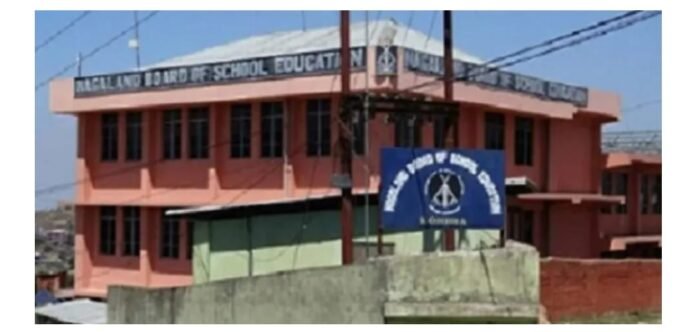The Nagaland Board of School Education (NBSE) recently issued a directive to higher secondary schools, urging them to introduce a wider range of subjects under its scheme of studies. This initiative aims to provide students with an enriched academic experience, catering to their varied interests and career aspirations. By expanding the subject options, the board intends to foster a conducive learning environment that promotes exploration, critical thinking, and holistic development. This article delves into the reasons behind the directive, the benefits it offers to students, and the collaborative efforts required for its successful implementation.
In the rapidly evolving educational landscape, it has become crucial to offer a comprehensive curriculum that equips students with a broader skill set and a deeper understanding of various fields of study. The Nagaland Board of School Education acknowledges the significance of this need and thus emphasizes the introduction of more subjects in higher secondary schools.
By expanding subject options, students gain the opportunity to explore areas beyond the core curriculum. This includes disciplines such as fine arts, technology, social sciences, and vocational studies. Such an expansion allows students to discover their passions, develop specialized knowledge, and make informed decisions about their future academic and career paths. Additionally, the inclusion of diverse subjects encourages interdisciplinary learning, enabling students to make connections between different fields of study and fostering a well-rounded education.
The directive to introduce more subjects in Nagaland’s higher secondary schools brings several advantages for students. Firstly, it provides greater flexibility in subject selection, allowing students to pursue their interests and talents. This freedom empowers them to personalize their education and align it with their individual aspirations.
Moreover, the inclusion of a wider range of subjects enables students to develop a versatile skill set, enhancing their competitiveness in an ever-changing job market. It equips them with the knowledge and expertise needed for diverse career options, fostering adaptability and lifelong learning.
The expanded subject offerings also contribute to the overall development of students’ cognitive abilities, critical thinking skills, and creativity. Exposure to different subjects encourages students to explore new perspectives, think critically, and apply knowledge across various domains. It nurtures their intellectual curiosity and encourages a love for learning beyond conventional boundaries.
The successful implementation of this directive necessitates collaboration between the Nagaland Board of School Education and higher secondary schools. Schools will need to assess their existing subject offerings, evaluate resource availability, and devise plans to effectively introduce additional subjects.
The NBSE will play a crucial role in guiding and supporting schools during this transition phase. It will provide assistance in developing curriculum frameworks, ensuring alignment with academic standards, and facilitating teacher training programs. By equipping educators with the necessary skills and resources, the board aims to enhance the quality of teaching and learning in these new subject areas.
The collaborative efforts between the NBSE and higher secondary schools will ensure a seamless integration of the expanded curriculum. Regular communication channels, workshops, and training sessions will enable educators to exchange ideas, address challenges, and share best practices. Additionally, periodic evaluations and assessments will help monitor the effectiveness of the new subjects and make any necessary adjustments to optimize student learning outcomes.
The directive by the Nagaland Board of School Education to introduce more subjects in higher secondary schools demonstrates the commitment to providing students with a comprehensive and relevant education. By expanding subject options, students can explore their passions, gain specialized knowledge, and make informed decisions about their future paths. The benefits of this initiative extend beyond academic development to encompass the cultivation of critical thinking, creativity, and versatility. Through collaborative efforts and support from the NBSE, Nagaland’s higher secondary schools are poised to create an inclusive and dynamic




